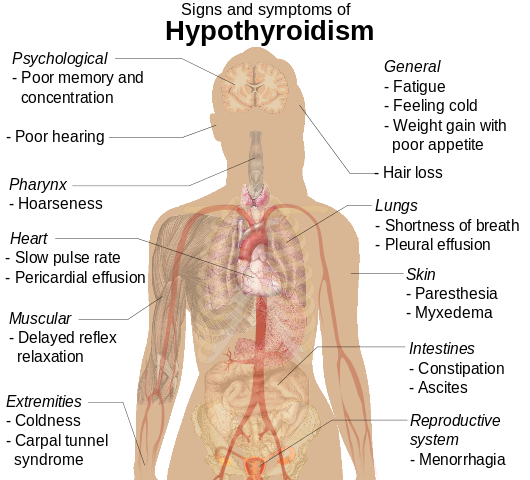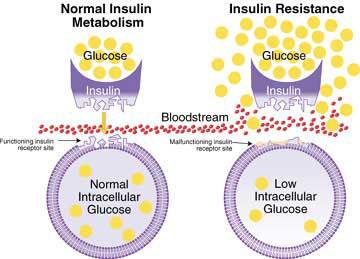Losing your hair can be a very stressful and upsetting experience. This is particularly true for women, because hair is often such a key part of your identity. Many women find unwanted hair loss embarrassing, and struggle to talk about it. In fact, it is very common for women to try to hide their thinning hair from their friends and family, and the stress of this deception can actually often make the condition worse!
There are many common causes of hair loss in women. These include hormonal changes, dietary changes, the aging process, and female pattern baldness. But if you have examined these more common causes of the issue and still haven’t discovered what is leading to your hair loss then here are some of the more unexpected causes of the condition that you may not have explored yet:
Table of Contents
Thyroid Problems
One common cause of hair loss in females that is relatively hidden is thyroid problems. This is a hidden issue because many women simply don’t visit their doctor to explore the problem thoroughly once they discover they are losing hair.
Hypothyroidism (more commonly known as having an underactive thyroid) is a condition that can affect between 20-50% of the general population. What’s more, it is a condition that tends to impact women ten times more men, and it tends to hit women between the ages of 40-50 more than any other section of the population. As well as leading to thinning hair, having an underactive thyroid can also cause tiredness, depression, and weight gain.
This is why, if you are experiencing hair loss, it is so important to visit your GP. Don’t let embarrassment put you off seeking a solution to your problem. Hypothyroidism can be diagnosed quickly using a simple blood test, and the condition can be controlled with medication, which will both help to reverse your hair loss as well as controlling the other symptoms of the condition.
Why suffer in silence when adding a simple tablet to your daily routine could help your hair to return thicker and stronger than ever before?

Insulin Resistance
Insulin resistance is a condition that is sometimes referred to as pre pre-diabetes. In much the same way as type 2 diabetes, insulin resistance is caused by a diet that is rich in sugary and starchy foods, and by overeating on a regular basis. The fact is that the modern diet is laden with high sugar, high calorie foods, and consuming these too often can have a seriously negative impact on your overall health and your hair health.
When trying to determine what causes hair loss in women, one of the first places you should start is the diet, as this is a very common root of the issue. Just like hypothyroidism, Insulin resistance can be diagnosed by your GP with a simple blood test.
Insulin resistance can be reversed but, unlike hypothyroidism, there is no medication to help to eradicate this issue. The only way to change the impact the condition is having on your life is by changing your diet and exercising more regularly.
As well as working out on a daily basis, reducing your central body fat levels and eradicating sugar from your diet completely should help to reverse the condition. However, this may not have an immediate impact on the damage that has already been done to your hair. Adding
hair loss vitamins specifically designed to promote hair growth and strength to your diet will help to speed up the process of returning your mane to its former glory!

Medication Side Effects
Finally, when assessing the causes of women’s hair loss, it’s easy to blame genetics and hormones. And whilst these are amongst the most common causes of hair thinning and excessive shedding amongst women, that doesn’t automatically mean that they are the root cause of your problem.
If you have any pre-existing health conditions, or are taking long term medication for any reason before you begin to experience hair related symptoms then it is worth visiting your GP to explore whether medication side effects could be causing your issue.
It is an under-reported and under-explored fact that some prescription medications can lead to hair loss. The number of drugs that list hair loss as a potential side effect is significant, but this list includes drugs that are prescribed to control heart conditions, blood pressure and arthritis. If you are taking birth control pills, antidepressants, or other kinds of mood controllers then these are also medications that have been shown to cause hair loss.
Here are just some of the most common medications that could have a negative impact on your hair:
- Hormone Replacement Therapy (both Oestrogen and Progestogen)
HRT works by readdressing the hormonal balance in your body to control the symptoms of menopause. However because hormones are so key to hair growth, upsetting your internal hormonal balance could also have a negative impact on your hair. - Nonsteroidal anti-inflammatory drugs.
These include Ibuprofen, Naproxen, Celecoxib, and Diclofenac. NSAIDs can lead to hair loss because the daily use of the drugs stops your hair growth cycle from working correctly. This can cause the cycle to stop prematurely, leading to thinning hair. - Antidepressants
The type of hair loss caused by antidepressants is called telogen effluvium: this is the hair loss often attributed to stress. When you are stressed your hair enters its resting state, leading to thinning because no extra hair is being produced. - Chemotherapy medications.
It is widely understood that chemotherapy medications can lead to dramatic hair loss. This is because the medications attack all the cells in the body in a bid to irradicate the cancer cells, including the healthy hair matrix cells.
The good news is that the hair loss you are experiencing as a side effect of your medication use should stop fairly quickly as soon as your stop taking the medication that is causing the problem.



















